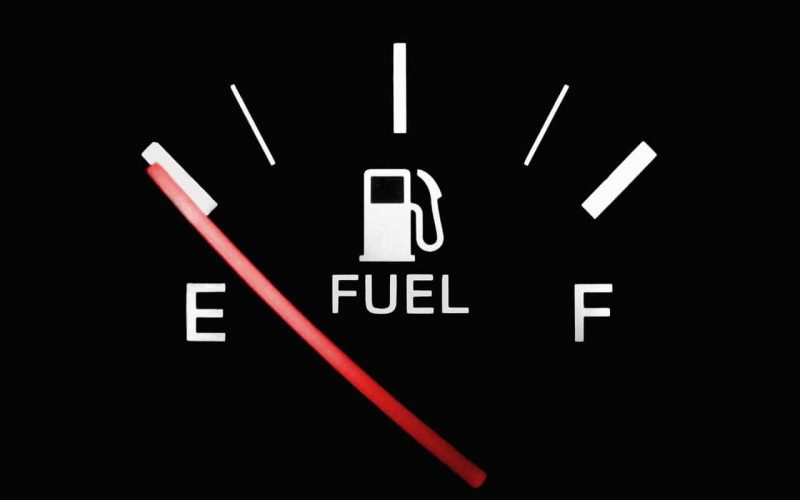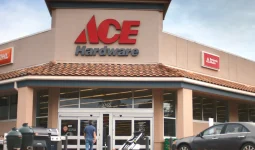Natural gas is a versatile energy source. It’s widely used in residential and commercial buildings, providing comfort and efficiency.
This article will discuss what uses gas in the house and why it’s essential in our everyday lives.
What Does Gas Mean in the Home?
Gas is a term for anything that burns or releases energy. In the home, gas refers to natural gas.
Natural gas is a fossil fuel found underground. It mainly consists of methane (CH4) and other hydrocarbons. The primary source of natural gas is shale deposits.
Gas is a very important part of our lives. It helps cook, heat, light, and cool homes. Gas also powers vehicles and industrial equipment.
There are two types of gas: natural gas and propane. Natural gas is lighter than air and floats above propane gas.
Natural gas is usually stored underground in large tanks. When you turn on the stove, the gas comes out of the tank and flows into pipes that go to the burner.
To heat your home with natural gas, you’ll need to connect your gas line to a meter. This is called a metered connection.
Your utility company will send someone to install the meter. Once installed, they will give you a meter reading and tell you how much gas you’ve used.
What Uses Gas in the House?
Cooktops
Cooktops are appliances designed to heat food using electricity. They are commonly found in kitchens and other areas where people cook.
However, they come in several types: induction, gas, electric, ceramic, halogen, and smooth top.
Gas cooktops help in cooking food using natural gas instead of electricity. The gas is stored under pressure and released into the cooking chamber through a valve.
This allows the gas to circulate the cooktop and reach the heating element at high temperatures.
Gas cooktops are becoming increasingly popular because they offer several benefits over electric cooktops.
They are safer, easier to clean, quieter, and don’t require electricity. This makes them ideal for those who live off-grid or in remote areas where power outages are common.
Ovens
An oven is an appliance that cooks, bakes, and grills food using heat.
The temperature inside the oven determines the cooking time, and you can use a thermostat to regulate it.
Ovens come in various sizes and shapes, from basic countertop models to large commercial units.
There are two types of ovens: electric and gas. Gas ovens run on natural gas and are great because they cook food faster than conventional ovens.
When cooking, the gas heats the air inside the oven. As the hot air rises, it gets pushed out through vents at the top of the oven.
Gas ovens are safe because they don’t produce sparks or high voltage. These ovens heat evenly and quickly and don’t require constant monitoring.
The amount of gas necessary to cook a meal depends on the temperature of the oven and the type of food you’re cooking.
Air Conditioner
An air conditioner is a device that cools indoor spaces and removes heat using refrigerant gas.
The refrigerant absorbs heat energy from the surroundings and releases it into the room, cooling the air inside the room.
Air conditioning units come in various sizes, shapes, and capacities to cool rooms.
The basic components include a compressor, condenser coil, expansion valve, evaporator coil, fan, thermostat, ductwork, and controls.
In addition, this device is an essential part of your home and part of what uses gas in the house.
It helps regulate indoor temperature and humidity levels. If you live in a hot climate, you might want to invest in a good-quality AC unit.
Refrigerators and Freezers
Refrigerators and freezers are one way to store food safely and preserve it for extended periods.
These appliances come in various sizes and shapes, from compact to large, and they vary in price according to their features.
Natural gas-fired ammonia refrigerators use evaporation to keep the contents and interior of the refrigerator cold.
As the liquid ammonia moves from the condenser to the evaporator, it combines with hydrogen discharged from another part of the refrigeration process.
Grills
Gas grills are useful in cooking food using propane or natural gas.
The gas burns at extremely high temperatures, which makes them ideal for searing steaks and grilling burgers.
They also provide a convenient way to grill vegetables and other foods.
Gas grills are great tools for cooking outdoors or at home. They allow you to cook food without worrying about fire hazards or smoke inhalation.
Also, you can cook food without worrying about messy pots or pans.
Clothes Dryers
A clothes dryer is a device that removes moisture from clothing and uses hot air to evaporate water from wet laundry.
As the air passes over heated coils, it becomes warm and moist. A clothes dryer has a venting system to allow the air to escape to ensure the air is not too humid.
Clothes dryers are essential appliances in our homes. They save us time and energy and reduce the laundry we must do.
A gas cloth dryer eliminates the risk of fire and reduces static electricity.
Water Heaters
A water heater is an example of a gas-powered device in the house that heats water for various purposes.
Gas water heaters are similar in design to electric models, although they use natural gas rather than electricity.
Also, portable water heaters perform the same function as gas water heaters.
Like electric models, gas water heaters produce a lot of hot water, making them useful in places with a lot of hot water. A gas water heater uses a burner to heat water.
The burner is at the bottom of the tank, where the water is stored. When the burner turns on, the flame heats the water in the tank until it reaches its desired temperature.
Fire Pits
A gas fire pit is similar to a charcoal grill, except it uses gas instead of charcoal briquettes.
Gas is much cleaner than charcoal, and it burns hotter than wood. You can use a gas tank to create a fire pit or buy a portable gas burner.
Gas-powered fire pits are great for people who live in rural areas where electricity is not easily accessible.
There are many different types of gas fire pits, but they all have some design that makes them unique.
You can find these fire pits at home improvement stores, online retailers, and local hardware stores.
Patio Heaters
A patio heater is a device that heats air and then circulates it over a surface area. It is a great way to keep warm on those cold winter nights.
This device is like a cylinder filled with hot air. You can place it outside where people can sit around it.
It is usually heated with a gas ignited in the burner, producing a warning flame.
Safety Tips for Natural Gas in the House
Know Where the Gas Line is Located Before Digging
If you plan on digging a hole in your yard, ensure you know exactly where the gas line is running.
If you don’t know where it is, call your local utility company first. You may need to dig around the house to find it.
Make Sure You Have a Working Carbon Monoxide Detector
A carbon monoxide (CO) detector should always be installed near any area where people spend time inside.
Carbon monoxide detectors work by detecting CO levels in the air. When they detect high levels of CO, they sound an alarm.
Install a Water Heater Filter
Water heaters produce steam that contains particles of dirt and bacteria. A water heater filter removes these contaminants from the water before it enters the tank.
Check the Pressure Gauge on Your Furnace Regularly
Furnaces release carbon dioxide (CO2), which can build up over time. Checking the pressure gauge on your furnaces helps ensure the system is operating properly.
Check Your Smoke Alarms Regularly
Replace batteries at least once per year. Ensure that smoke alarms are inside bedrooms and sleeping areas.
Keep Flammable Materials Away From Your Home’s Natural Gas Supply
Flammable materials should never be stored near your home’s natural gas system. Gas leaks can cause severe damage to your property and even death.
Have Your Home Inspected Annually
Have your home inspected annually by a professional who inspects homes for natural gas leaks.
A licensed inspector will look for cracks around your home’s natural gas piping and ensure that your home’s natural gas connections are safe.
Call 911 Immediately
If you smell gas or feel dizzy, call 911 right away. Gas leaks can cause fires or explosions.
Locate Your Natural Gas Meter
You should be able to turn off the gas valve whenever you hear gas escaping, smell gas, or suspect gas leaks.
Have a Plan for Emergencies
Ensure everyone knows what to do in a gas leak or fire emergency.
Conclusion
Gas is helpful for everyday home use, especially water and space heating. As much as we know what uses gas in the house, we should be able to apply safety measures to prevent hazards. Thanks for reading!







